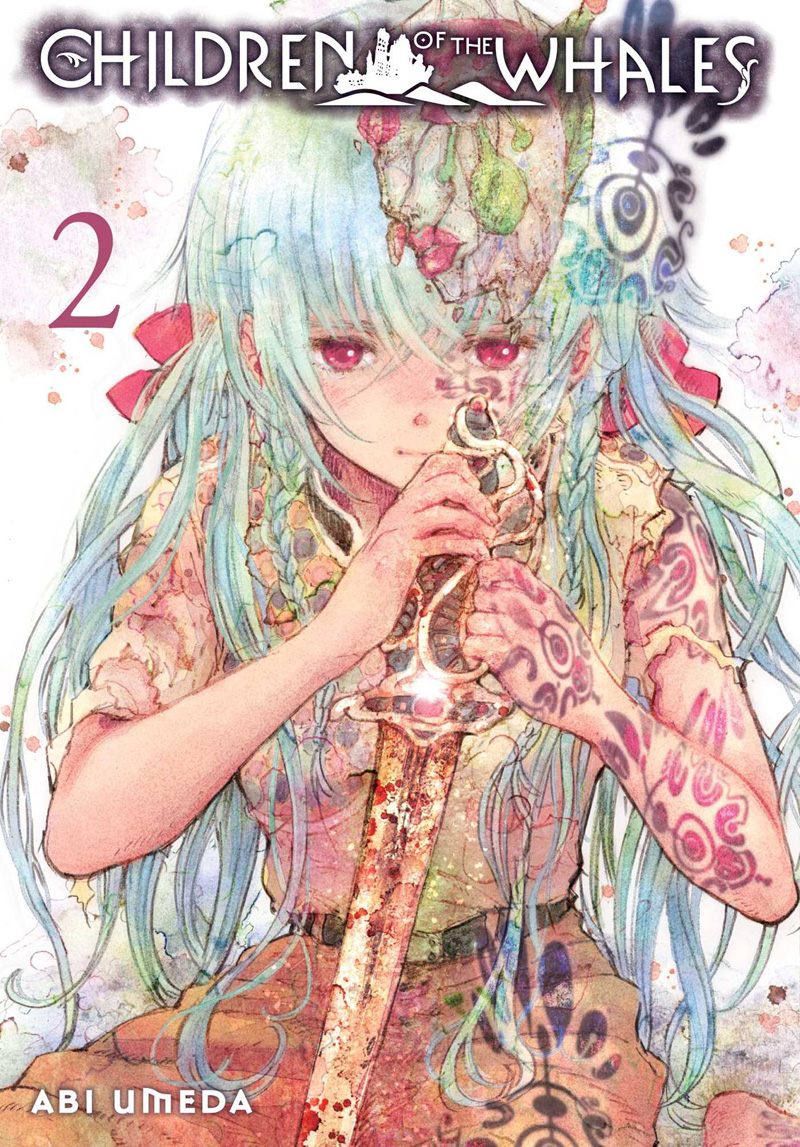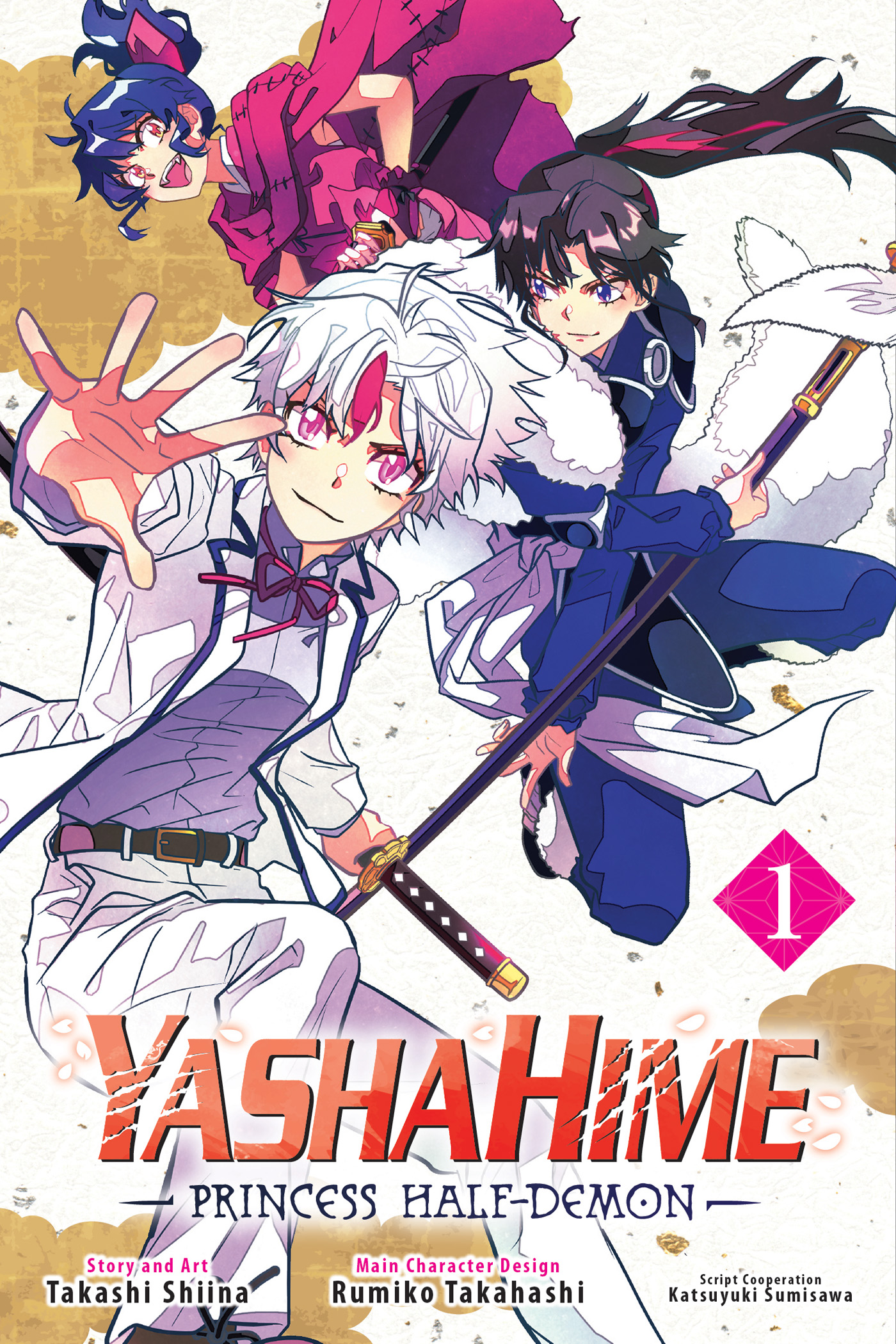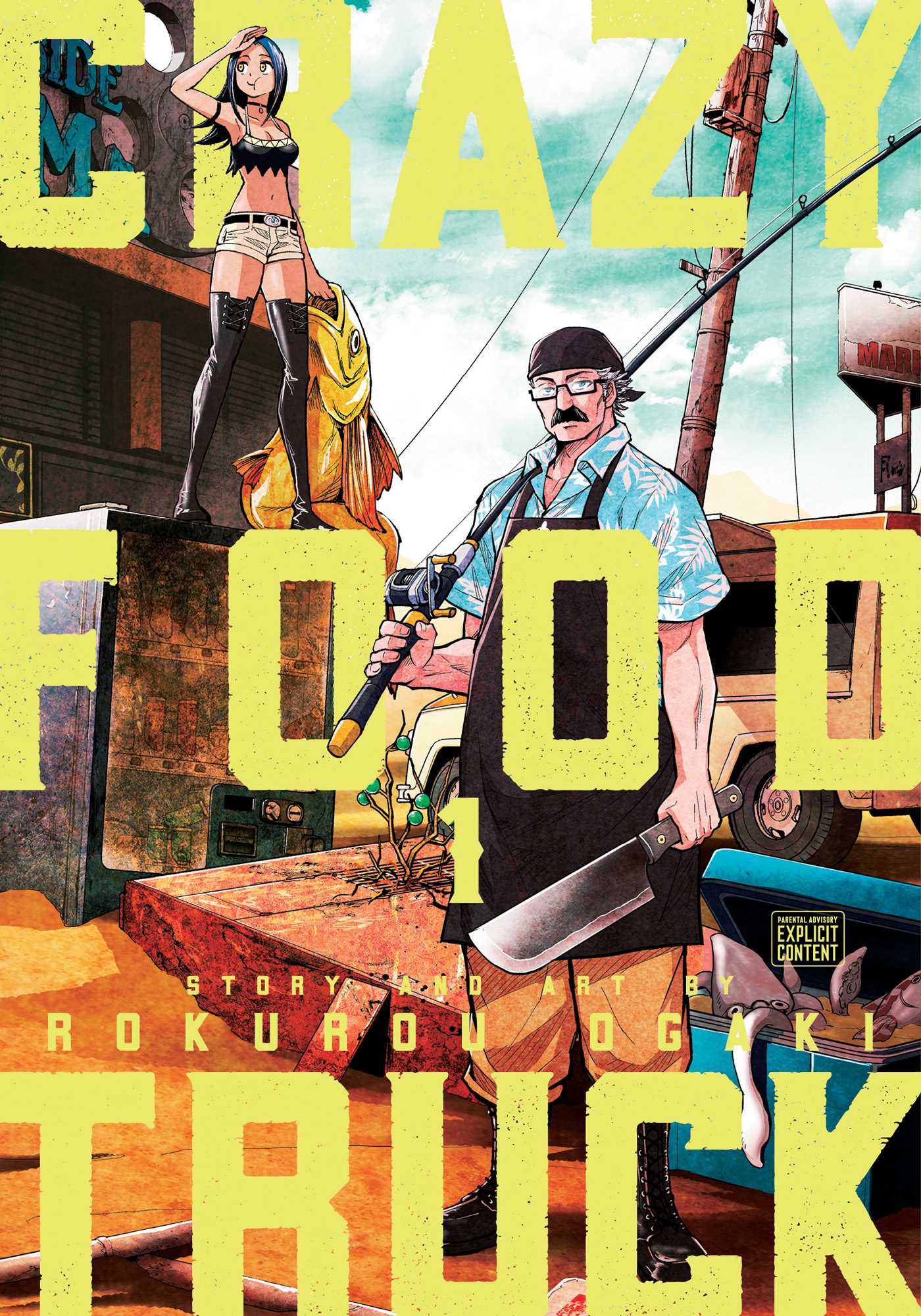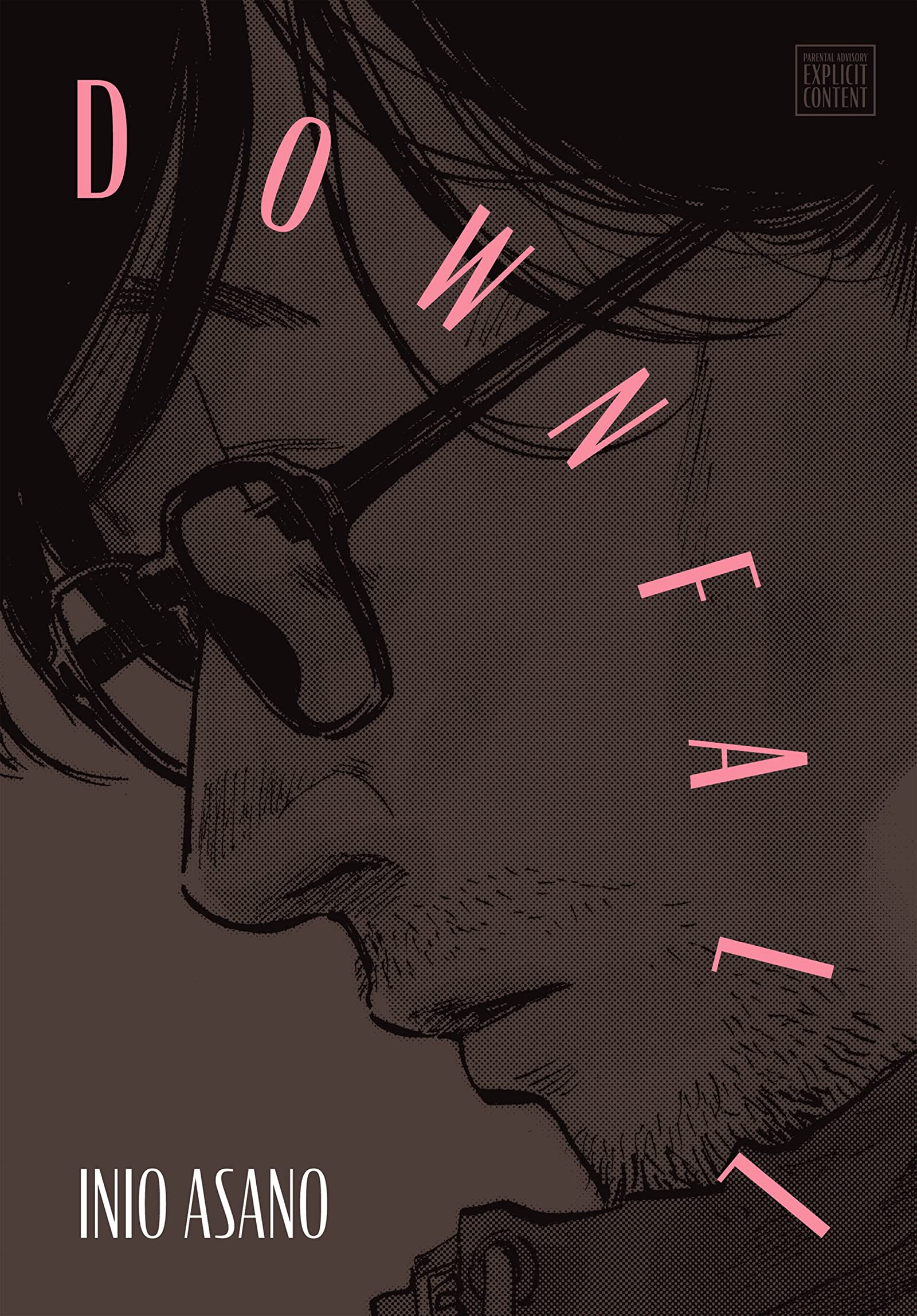Children of the Whales suffers from the same problem as many prestige television shows: it boasts a thought-provoking premise, compelling lead characters, and sophisticated visuals, but is such a relentlessly downbeat experience that you’d be forgiven for abandoning ship after a few chapters.
The story unfolds aboard the Mud Whale, a sentient vessel. Its 513 inhabitants have been exiled from their homeland for over 90 years, drifting across a vast ocean of sand punctuated only by the occasional island or abandoned boat. Fourteen-year-old Chakuro is the community’s archivist, tasked with recording births and deaths, strange encounters, and changes in the Mud Whale’s leadership, events he catalogs with almost fanatical devotion. Making his job more bittersweet is the discrepancy between the “marked” residents, whose ability to wield magic (or “thymia,” in the series’ parlance) dooms them to a short lifespan, and the unmarked residents, whose normal lifespans have forced them into the role of caretakers and governors.
To stave off despair, the Mud Whale’s residents eschew emotional display — a point reinforced in the earliest pages of volume one, when Chakuro sheds a tear at a 29-year-old woman’s funeral. Immediately, his peers enjoin him not to weep, lest “the souls at the bottom of the sea cry out for you.” It’s a simple but effective scene, one that reminds us that the Mud Whale’s inhabitants are caught between the real prospect of extinction and the uncertain possibility of survival; only their fierce commitment to living in the present moment preserves their tenuous existence.
While scavenging for supplies on a seemingly deserted island, Chakuro stumbles across a blank-faced girl about his own age. She attacks him with swords and sorcery, only to collapse, unconscious, from the effort of casting a spell. Chakuro is frightened but intrigued, and brings Lykos back to the Mud Whale where he learns her true identity: she’s an apatheia, an emotionless soldier. “Emotions will destroy the world,” she informs Chakuro. “The outside world you want to know so badly about is ruled by people deficient in feeling, using apatheias who have no heart to fight a war without end.”
 The next major plot development — a surprise attack — delivers the series’ first truly grim moments, as the Mud Whale’s inhabitants are beaten, impaled, and gunned down by unknown assailants. Though Chakuro and Lykos have been fleshed out enough to earn the reader’s pity, the sheer size of the cast and the suddenness of the ambush blunt the impact of the carnage; we can see that Chakuro is devastated by the loss of his childhood friend Sami, but Sami is such a stock character — innocent, impetuous, infatuated with Chakuro — that her gruesome death registers as a manipulative attempt to illustrate the truth of Lykos’ earlier comments about the outside world. That same kind of heavy-handed editorializing extends to the villains’ physical appearance as well. They look like Juggalos in chain mail, sporting maniacal grins that scream, “Sadists ahoy!”, a point underscored in the gleeful way in which they violate corpses and taunt sobbing victims.
The next major plot development — a surprise attack — delivers the series’ first truly grim moments, as the Mud Whale’s inhabitants are beaten, impaled, and gunned down by unknown assailants. Though Chakuro and Lykos have been fleshed out enough to earn the reader’s pity, the sheer size of the cast and the suddenness of the ambush blunt the impact of the carnage; we can see that Chakuro is devastated by the loss of his childhood friend Sami, but Sami is such a stock character — innocent, impetuous, infatuated with Chakuro — that her gruesome death registers as a manipulative attempt to illustrate the truth of Lykos’ earlier comments about the outside world. That same kind of heavy-handed editorializing extends to the villains’ physical appearance as well. They look like Juggalos in chain mail, sporting maniacal grins that scream, “Sadists ahoy!”, a point underscored in the gleeful way in which they violate corpses and taunt sobbing victims.
The most frustrating thing about these frenetic chapters is that they seem fundamentally at odds with the deliberate pacing and meticulous world-building in volume one. In these introductory pages, Umeda maps every nook and cranny of the Mud Whale, creating an environment as imposing and intimate as Hayao Miyazaki’s Laputa. She approaches her character designs with same patience and care, bestowing a semblance of individuality on each resident while establishing their collective identity as a people. Even Chakuro’s frequent voice-overs — presumably read from the Mud Whale’s archives — play an important role in helping us experience time the way the Mud Whale’s residents do; there’s a lyrical quality to Chakuro’s narration that captures the rhythms of their day-to-day existence.
Yet for all Umeda’s world-building skills, Children of the Whales‘ dour tone puts the reader at arm’s length from the characters. Minus the flashes of joy, humor, and warmth that temper Miyazaki’s most downbeat films, Children of the Whales feels more like an episode of The Leftovers or Rectify than Castle in the Sky; it’s so utterly mirthless that it casts a pall over the reader instead of prompting deep thoughts or empathy for the characters. Take my manga, please!
CHILDREN OF THE WHALES, VOLS. 1-2 • BY ABI UMEDA • VIZ • RATED T+ (FOR OLDER TEENS)




Aaron says:
I reviewed the first two volumes admittedly I’m more of a lachrymose individual than some and I rather enjoyed it as much as one can enjoy seeing characters you have grown to love to suffer horribly. Interesting that you should mention Sadism given the introduction of Liontari in volume two.
There is a quote by Franz Kafka I rather like that sums up my thoughts on fiction and what I seek in it to quote it in full: “I think we ought to read only the kind of books that wound and stab us. If the book we’re reading doesn’t wake us up with a blow on the head, what are we reading it for? So that it will make us happy, as you write? Good Lord, we would be happy precisely if we had no books, and the kind of books that make us happy are the kind we could write ourselves if we had to. But we need the books that affect us like a disaster, that grieve us deeply, like the death of someone we loved more than ourselves, like being banished into forests far from everyone, like a suicide. A book must be the axe for the frozen sea inside us. That is my belief.”
Admittedly what you want to read or seek to “get out” of a book is different for every individual. I simply like it when an author is willing to go that far and hurt their audience as it shows for me at least as a kind of bravery. Between this title and Fire Punch by Fujimoto, Tatsuki. Along with later arcs in Tsukushi, Akihito’s Made in Abyss. Frankly, I’m given an embarrassment of riches of depressing Manga to read.
Admitidedly this also goes into my belief that one can not apprciate beauty without without first confronting what is ugly be it moral or aesthtic. Of course that gets into a larger debate of objectvity and subjectvity in art and morals but I digress.
Katherine Dacey says:
Hi, Aaron — point well taken! For me, I think the main issue was the radical shift in tone and pacing. I found the first few chapters very engrossing, and was willing to see where Umeda took the story at the end of volume one. I found volume two a very different beast: the frenzied pacing made it difficult to fully appreciate what was happening to the characters.
Don’t get me wrong: there are plenty of downbeat books, manga, and movies that I love. This series just didn’t turn out to be one of them!
Aaron says:
I think the faster pace in volume two contributes to the sense of the horror of what is happening giving it a sort of “You are there” kind of feel or as I said in my review the abject horror of the secenes brought The Third of May 1808 by Francisco Goya to my mind as well. Combined with the more deliberate pace of volume one building the tension like a trap being set than sprung in volume two.
I can see how the pace might throw you off but I think it works emotionally and thematically as almost of all of the chapters in volume two after chapter 6. Deal with the slow social and mental disintegration of Mud Whale its citizens as well as the death of many of the characters hopes and dreams, in particular, Ouni at one point.
If it moved too fast for you’re liking I’ll give you that. But I feel it works with the first two chapters of volume two being frantic. Given the slower pace of the first volume and allowing the horror of what has transpired in the eralier chapters to sink in with latter chappters of volume two.
Along with some of the more emotionally deliberate scenes like Kuchiba’s survivor’s guilt or Chakuro’s grieving or the burieal of the dead in volume two.
I think it’s purposeful to be that fast given how volume two ends. Otherwise the series risks becoming like Gargantia on the Verdurous Planet (an Anime I liked with similar setting and themes) and becomeing stuck in it’s anyalisis of weighty philosophical themes and worldbuilding while underdevloping it’s charcters.
Along with the conciet that Umeda-Sensei plays parts of the story off as a dramatizationin in the afterward. Again I feel if it’s a valid criticism if the paceing threw you off I just think it served some sort of emotional truth the series. And I think emotional truth sometimes trumps paceing or story structure and mechanics but that is just me feel free to disagree.
Katherine Dacey says:
Hi, Aaron! I’m not dissing Children of the Whales in my review — Scout’s honor! I think for me to give myself over to a series like this, the structure and mechanics need to be a little more seamless. I’ve watched movies that were tremendously sad — Sophie’s Choice, The Bicycle Thief, Up, Moonlight — and still felt uplifted by the experience of watching them. In Whales, I could never quite achieve that level of immersion necessary to feel the characters’ anguish; I was always aware of how the author using plot devices and dialogue to create the mood, and it made the experience less moving for me.
I just read a Twitter thread that articulated similar ideas a little more concretely than I did in my review. Here’s a link: https://twitter.com/ellle_em/status/958416833299828736.
Aaron says:
Oh, I’m not accusing you of being disrespectful to the work I hope that was not what you thought I was trying to convey. In some ways this I think this is simply a difference in what one seeks from a work along with personal idiosyncrasy on my part.
If I read something that is tragic or sad I don’t want happiness in it there may be a level of wanting my bias about how awful life is confirmed but that is more of an aside.
As well as more than likely due to my bleak vale of tears outlook on humanity and society at large. Sure I believe in ultimate hope but that is more something that I believe exists eternity, not mortality. But this more an explanation of my presuppositional framework than anything else.
In short, I don’t ultimately look to fiction to be uplifted I look to it to try an envision a fictional universe. Or grapple with some theme or understand a character that is unlike me or simply to escape my reality.
Or learn empathy for others unlike me or simply to be amused. Apologies if this feels rambling and incoherent and thanks for being such a good sport.
I can see the points you are making but for me and me alone the emotional truth of the series far outweighs the technical flaws in the work in question.
I’ll close with qoute attribited Gen Urobuchi that sums up pretty much how I feel “I have nothing but contempt for the deceitful thing men call ‘happiness,’ and find myself with no choice but to push my characters, whom I pour my heart and soul out to create, into the abyss of tragedy.”
Gen Urobuchi